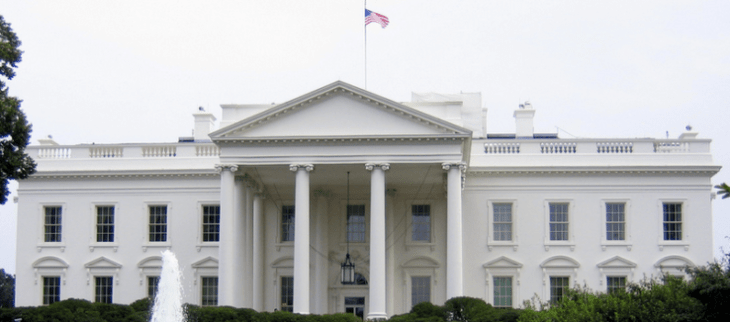U.K. Prime Minister David Cameron is evidently not done banging the anti-encryption drum in public yet — despite being slammed by Internet security experts, startup investors and others earlier this week for appearing to suggest he wants to outlaw strong encryption.
The widespread interpretation of Cameron’s comments as signifying an intention to ban encryption resulted in government sources doing some hasty re-spinning of his words. Rather, they said, this is about Cameron chest-beating on counter terrorism and trying to apply political pressure on Internet companies to backdoor their own services to give government agencies access.
In other words if you can get Internet companies to stop using end-to-end encryption and/or co-operate on installing backdoors into strong encryption, then there’s no need to actually ban encryption because government can get its hands on the user data it’s after anyway.
Workaround, baby, workaround.
The PM is this week in Washington D.C. for a long scheduled meeting with President Obama, but, in the wake of last week’s terror attacks in Paris, it looks likely Cameron will use the opportunity of a joint podium with POTUS to push for a united front to apply more pressure to Internet companies to perforate their own security in the name of counter-terrorism surveillance. Amping up the rhetoric abroad, as he has done at home.
Both the WSJ and The Guardian are today reporting, via their own government sources, that Cameron intends to lobby Obama on encryption workarounds — and specifically to urge U.S. Internet companies to provide access to user data to U.K. security services.
The Guardian quotes a government source saying: “The prime minister’s objective here is to get the U.S. companies to cooperate with us more, to make sure that our intelligence agencies get the information they need to keep us safe. That will be his approach in the discussion with President Obama — how can we work together to get them to cooperate more, what is the best approach to encourage them to do more.”
Cameron and Obama have also today penned a joint column in The Times newspaper (available outside the paywall via Facebook), headlined ‘Security and prosperity go hand in hand’ — an indication the two leaders are thinking broadly on the same page when it comes to counter-terrorism strategy.
TechCrunch understands that cybersecurity will certainly be on the tech discussion agenda for the meeting, although, when asked directly, the Downing Street press office declined to provide any official information on the meeting in advance of a scheduled press conference tomorrow —- including declining to confirm whether Cameron will be directly lobbying Obama to lean on U.S. Internet companies to soften their stance on encryption.
U.K. security services have already laid down some advanced counter-terror rhetoric against U.S. Internet companies. For instance last November the head of the GCHQ spy agency made a direct public appeal to U.S. Internet companies to co-operate and hand over data on users when asked to do so by U.K. intelligence agencies.
U.K. spy agencies “cannot tackle these challenges [terrorists’ use of digital services] at scale without greater support from the private sector, including the largest U.S. technology companies which dominate the web”, he said.
The finger of blame has also been pointed at Facebook for not doing more to help U.K. security services thwart a terror attack in London in 2013 which left one British solider, Lee Rigby, dead. The fact that there had been multiple intelligence failures by the security services themselves was glossed over in the rush to scapegoat Internet services for not handing over more user data.
It’s a similar story in the U.S. too. The FBI has been publicly critical of Internet companies, after moves by Apple, Google and others to roll out stronger encryption. “We’re seeing more and more cases where we believe significant evidence is on that phone or a laptop, but we can’t crack the password,” the FBI director said in a speech in Washington last October.
The WSJ reports that Cameron will try to push Obama “in the direction of what the FBI has said about this”, quoting a person “familiar with the PM’s intentions”.
Tech companies turning to stronger encryption is itself a response to user trust, privacy and civil liberties’ concerns, following the 2013 revelations of extensive government surveillance dragnets detailed in documents released by NSA whistleblower Edward Snowden.
